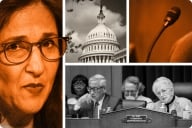You have /5 articles left.
Sign up for a free account or log in.

iStock/erhui1979
Each year, hundreds of people, many of them readers of Inside Higher Ed, aspire to become a college or university president -- one of the most difficult but rewarding jobs in America. But many of them not only have a number of misconceptions about the search process but also make needless mistakes when they apply.
This article addresses some of those misconceptions and mistakes. I do this as a 20-year president of two liberal arts colleges who in retirement works for a national higher education search firm that specializes in college and university presidential searches.
Misconception: To be a successful candidate, you must be an academic (preferably with tenure) and have a doctorate. This is a misconception I hear from many people both within and outside the academy, often discouraging otherwise qualified people from applying. While it is true that many presidential candidates are academic deans or provosts, others are vice presidents in nonacademic areas such as admissions, financial affairs and development.
Moreover, successful candidates increasingly come from outside the academy and are business leaders, attorneys and even retired military officers (what we call “nontraditional” candidates). Key for nontraditional candidates is that they have a deep understanding of what makes a college or university different from other organizations. For example, many nontraditional candidates have served as college trustees and understand the distinct concept of shared governance.
Generally, successful candidates for a college presidency are, among other things, experienced and proven leaders who have strong communication skills and are people of high moral integrity. Must they have a doctorate? Most college presidents do, but others just have a terminal degree. The most crucial ingredient for a successful presidency is not a particular credential but experience raising money, balancing budgets and managing a complex organization. I have a doctorate in 18th-century British history but cannot remember ever calling on my degree to resolve a challenging administrative conundrum. It was my experiences in previous positions that I relied on.
Misconception: The search committee needs to know every detail of the candidate’s professional life. In the initial phase of a search, candidates are required to submit a letter of interest and a CV. But what my search partner and I often receive is a surfeit of information, much of it irrelevant to the immediate task at hand -- which is for the search committee to decide who among 70 or 80 applicants they want to interview.
For example, we once received a 48-page CV, which was a compendium of the candidate’s life over the past 15 years. We also often receive 10- to 20-page letters of interest, many of them regurgitating in further detail the CV.
Initially, search committees don’t need to know about every public address the candidate made since graduating from college or every volunteer activity in which they have been involved. They just want to know the person’s educational background and employment history in a couple of pages. Similarly, they don’t want a letter of interest that is a mini-dissertation -- they prefer a few pages that address the institution’s search profile and make the case for one’s candidacy. Presenting a 48-page CV or 20-page letter of interest will only discourage the search committee from reading the material carefully, if at all.
Mistake: When candidates leave out crucial data and information. It’s perplexing to me how many candidates leave vital information out of their CVs. For instance, I’ve seen CVs that contain unexplained career gaps or suggest that the candidate is currently unemployed but with no explanation of why that is the case. When that happens, the search committee becomes concerned. If a candidate was on parental leave or had to take care of an elderly parent, they should just say so. Not including such information often leads the search committee to assume the worst.
Mistake: When candidates don’t show up or miss a deadline. Everyone is busy. But I’m not impressed when I have arranged a phone interview and the candidate inadvertently stands me up or misses the application deadline. College presidents must keep appointments and make deadlines. When candidates can’t do this, we wonder whether they will make good presidents.
Misconception: “I didn’t get the job. There must be a mistake.” When a search has been completed, I am always amazed at the number of candidates who will telephone me when they didn’t get the job wondering whether the search committee made a mistake. “I had more impressive credentials than the other two finalists!”
In my experience, a search committee’s final decision is rarely based solely on objective criteria, such as the number of degrees a candidate has or the prestige of their current university or organization. Far more important are subjective criteria, like their interaction with the campus constituencies during the finalist interviews. Then there are the X factors -- including leadership skills and motivation -- that are difficult to quantify.
Search committees are also looking for a person whose skills match the current needs of their institution. For example, many years ago I could not understand why I was turned down for the presidency of a particular college to which I had applied. I had been a dean at an Ivy League university and held a doctorate from a prestigious university. The college ended up hiring a corporate CEO who didn’t have a doctorate but had served on the board of another college.
Objectively (at least based on academic credentials), I was the superior candidate. But that college was running huge deficits and needed an experienced leader who could downsize and manage budgets and, at the same time, maintain campus morale. I was young and inexperienced, at least in the area of financial management. I wasn’t ready for the challenge. The college made the right choice!
Misconception: “I didn’t get the job. I better give up.” Related to what I have said above, it is important to remember that, in any presidential search, only one person ends up getting the post. So when 60 or more people apply for a particular presidency, the process can be competitive in the extreme. Many first-time presidential candidates think that all they need to do is apply and they will be hired. Only rarely does that occur. I eventually went through at least eight searches to get to my first presidency, another four to get to my second. So I always tell strong candidates who didn’t get the job the first time around not to take it personally, to have a thick skin and to keep applying.








